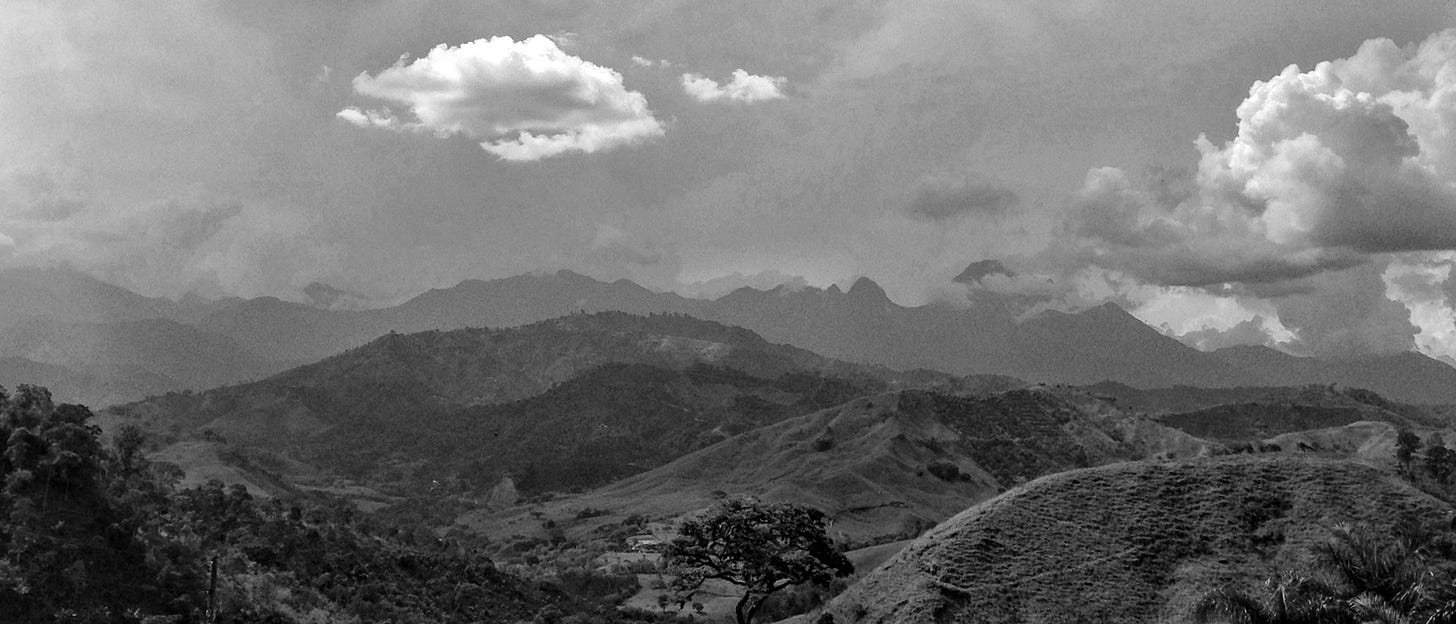Coffee News Roundup: Week Ending May 7th
This week, how protests in Colombia have impacted the country's coffee industry; the SCA announces an in-person Expo this year; & Westrock Coffee's CEO gets a glowing (not coffeewashing) interview.
Hello and welcome to another Coffee News Roundup. Once again I don’t have a witty way to introduce the news, so let’s just get into it.
Protests In Colombia Have Halted Coffee Exports - Via Sprudge
What originally began as a general strike to resist government-proposed (and now cancelled) tax increases on its poorest citizens, has expanded into a country-wide protest against Colombia’s increasing inequality alongside calls to “tackle poverty, police violence and inequalities in the health and education systems.”
The country’s hyper-militarized police have reacted with brutal violence, with a death toll confirmed at 24 but potentially as high as 37 and condemnations from human rights groups.
Anti-government protesters have set up blockades around the country but specifically in the major port city of Buenaventura, which has had the knock-on effect of halting coffee exports. Roberto Velez, head of the National Federation of Coffee Growers of Colombia (Fedecafe), told Reuters that “We are stopped completely, exports are stopped, there is no movement of coffee to ports nor internally.”
Coffee in Colombia is a hugely important industry, with more than 500,000 farmers making it the third largest coffee producing country in the world. However, Reuters reports (rather generally) that “coffee-growers, who are enjoying relatively high prices on the New York market of $1.48 per/lb., have not yet joined national strike efforts.”
Protests, Violence, And Calls For Support: Voices Of Colombia’s Coffee Professionals - Via Sprudge
The nationwide protests, and the government’s shameful response, combined with ongoing economic uncertainty from the coronavirus pandemic, have had a noticeable impact on the Colombian coffee industry.
Sprudge has done a great job of collecting the experiences of a number of coffee professionals, from coffee shop owners to importers to tour guides, to offer an on-the-ground viewpoint that is usually missing from mainstream news reports. Here are a few quotes.
“Basically the violence that for more than 50 years has impacted the countryside oppressing growers for a very long time and being supported by the narcotraffic and government has now reached the main cities,” said Angie Katherine Molina Ospina, co-founder of Insignia Coffee in Tolima.
“State forces and government are out of control,” said Javier Tabares, a coffee experiences tour guide, translator, teacher and barista trainer based in Medellin. “This protest is peaceful, but every night since late April, the police are firing on citizens with no caution or mercy.”
And how it’s affecting the coffee industry:
“If we talk about the whole coffee production chain, absolutely everyone who works with coffee is being affected,” said Maria Paulina Pulido Zuluaga, a coffee teacher and barista based in Medellin. “From farms, producers, roasters and coffee shops to exporters and educators.”
“Due to the public order situation the city in general is empty, which directly affects the coffee shops—not only ours but also everyone else here in the coffee industry, “said Cristian Raigosa Perez, co-founder of three coffee projects in Medellin. “The supply of beans from other regions is stopped due to road closures, and even internally within our department it is difficult to mobilize coffee.”
It’s definitely worth reading the full piece, linked below, to get a sense of just how widespread these protests (and the ensuing police violence) really are.
SCA Confirms 2021 Specialty Coffee Expo Is Happening This Fall In New Orleans - ViaDaily Coffee News
The Specialty Coffee Association (SCA) announced this week that an in-person 2021 Expo trade show will take place in New Orleans this fall. After cancelling the 2020 version because of the pandemic, the SCA is confident that this year’s event will go ahead as normal September 30–October 3, with 100 exhibitors already signed up to take part.
“We are extremely excited to be welcoming our community to a physical trade show again after over a year of not having met in person,” SCA CEO Yannis Apostolopoulos said in an announcement. “The effective health and safety guidelines and regulations we are putting in place prioritizes the safety of attendees and exhibitors, and allows us to bring back much-loved Expo features.”
Expo will also feature the nationals for the US Coffee Championships, or at least some of them.
Registration for the event will open June 1, and the SCA is also accepting lecture proposals for the education portion, with a deadline of May 28.
More Headlines
The Shade Catalog Shines A Light On Agroforestry And Farmer Livelihoods
‘An Attack On Tradition’: Italian Bar Owners Protest Rule Against Drinking Coffee At The Counter
The Week In Corporate Coffeewashing
Here’s a glowing interview with the CEO of Westrock Coffee Company entitled “Coffee Capitalism at Work in Rwanda”. It’s really something.
After beginning with a note that “it’s been a challenging year for capitalism”, the piece becomes a paean to free enterprise: “the system has served the American consumer well, and Westrock Coffee Co. CEO Scott Ford is a fervent believer in, and beneficiary of, capitalism. So, too are the small East African farmers that helped launch the Westrock company and brand.”
Ford, who pulled himself up by his bootstraps to become CEO of the communications giant Alltel (a company his father co-founded) before eventually selling the company to Verizon for $28 billion, met Rwanda president Paul Kagame and, after the sale to Verizon, decided to invest in the country.
Ford was having a cup of coffee at a café and thought, “This is some of the best coffee I’ve ever had in my life.” The coffee was grown locally, but Ford soon learned that the farmers were struggling financially, because the price they received was roughly half of what those in neighboring countries were paid, due to supply-chain challenges and a lack of modern roasting infrastructure.
“That’s how it started: an innocent conversation over a cup of coffee,” Ford says of Westrock’s origins.
The article really wants to hammer home that capitalism, and particularly foreign investment in Rwanda, is what’s helping coffee farmers raise themselves out of poverty.
Which might be true, but the profile also gives tacit approval to Ford’s close relationship with Kagame, whose government has been accused of human rights abuses including detention and torture of dissidents and political assassinations. The article doesn’t focus on that, of course, but instead tells us how great Westrock (with its revenues of $700 million) and Ford have been for Rwandan farmers with their “continuing impact” and “development programs”
Is Coffee Good For You?
Nothing new to report this week, so let’s once again pretend that this means coffee is healthy.
What To Read
Right-wing Coffee Companies Want To Make Coffee Great Again by Luke Winkie
When The Mafia Serves Coffee In The Courthouse by Gaia Pianigiani and Emma Bubola






